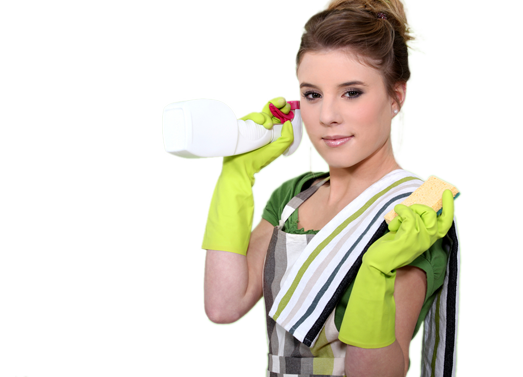End of Tenancy House Cleaning Empowerment for Tenants
Posted on 20/06/2025
End of Tenancy House Cleaning Empowerment for Tenants: The Ultimate Guide
Moving out of a rented home can be both exciting and overwhelming. One crucial aspect that often determines the fate of your rental deposit is end of tenancy cleaning. In this comprehensive article, we explore how tenants can empower themselves to take charge of the house cleaning process, ensuring a seamless transition and maximum deposit return.

Why End of Tenancy House Cleaning Matters
The end of tenancy cleaning is more than a simple chore--it's a pivotal step for any tenant preparing to leave a rental property. Not only does it reflect your respect for the landlord and the next tenants, but it also directly influences whether you receive your full security deposit back. A well-cleaned property minimizes conflicts, expedites checkouts, and leaves behind a positive impression.
- Deposit Return: Most tenancy agreements stipulate that the property must be returned in the same condition as when you entered. A thorough cleaning can mean the difference between a full refund and unnecessary deductions.
- Reputation: Landlords and agents may provide rental references for future tenancies--demonstrating responsibility makes for a glowing recommendation.
- Stress Reduction: Cleaning before moving day helps avoid last-minute rushes and potential disputes.
Challenges Faced by Tenants During End of Tenancy Cleaning
Despite its importance, the process of moving out cleaning can present several hurdles:
- Lack of knowledge about landlord expectations
- Time constraints due to packing and moving logistic
- Insufficient professional cleaning tools and products
- Difficulty tackling stubborn stains or accumulated grime
- Uncertainty about check-out inspections and cleaning standards
Addressing these challenges requires awareness, planning, and practical know-how--a combination that forms the bedrock of tenant empowerment.
The Empowerment Mindset: Taking Charge of End of Tenancy Cleaning
Tenant empowerment means equipping yourself with the knowledge, confidence, and resources to handle the end of lease house cleaning efficiently. This approach not only ensures the property is left in excellent condition but also boosts your self-reliance, saves money, and fosters a stress-free move.
Key Principles of Empowered End of Tenancy Cleaning:
- Proactivity: Don't wait for the last minute. Schedule your house cleaning a few days before your move-out inspection.
- Preparation: Gather all essential cleaning supplies and create a checklist tailored to your property's needs.
- Attention to Detail: Landlords often focus on forgotten areas--like skirting boards, oven interiors, behind appliances, and inside cupboards.
- Documentation: Take before and after photos of your cleaning, offering indisputable evidence in case of disputes with the landlord.
- Open Communication: If possible, ask your landlord or letting agent for their precise cleaning expectations.
Step-by-Step End of Tenancy Cleaning Guide for Tenants
1. Review Your Tenancy Agreement and Inventory Report
Start by thoroughly reading your original tenancy contract. Note specific end of tenancy house cleaning terms and whether professional cleaning is required. Examine the inventory report to spot areas needing special attention.
2. Gather Supplies and Tools
Stock up on essential items for a comprehensive cleaning, including:
- All-purpose cleaners and disinfectants
- Glass cleaner
- Microfiber cloths, sponges, and scrubbers
- Mop, bucket, and cleaning brushes
- Vacuum (with attachments)
- Oven and hob degreaser
- Carpet stain remover
- Protective gloves and face mask
3. Create a Personalized Cleaning Checklist
Customizing your checklist ensures every area is addressed:
- Kitchens: Appliances (inside and out), countertops, cabinets, sink, taps
- Bathrooms: Toilet, sink, shower/bathtub, mirrors, tiles, limescale removal
- Bedrooms & Living Rooms: Carpets, floors, baseboards, light fixtures, skirting boards, windows
- Other: Curtains/blinds, radiators, behind furniture, hallway, storage spaces
4. Start with Decluttering and Dusting
Remove all personal belongings and rubbish. Tidy up cluttered spaces, giving you easier access for thorough dusting and wiping down of all surfaces.
5. Deep Cleaning Techniques for High-Impact Areas
Empowered tenants understand that end of tenancy deep cleaning must go beyond surface-level cleaning. Focus on these key zones:
- Kitchen: Remove grease from oven, hobs, extractor fans, and tiles. Clean inside the refrigerator and dispose of all perishables. De-lime taps and sinks.
- Bathroom: Eliminate soap scum and mold from grout, tiles, and shower screens. Clean toilets, sinks, and polish chrome fixtures.
- Hard Floors and Carpets: Vacuum thoroughly, sweep, mop, and treat carpet stains with spot remover.
- Windows: Wash inside glass and wipe frames and sills. If accessible and safe, clean the outside too.
- Walls: Address any scuff marks or spots using mild detergent.
6. Final Touches and Inspection Preparation
- Replace any missing or defective light bulbs
- Check for cobwebs in corners and ceilings
- Wipe down baseboards and skirting boards
- Polish door handles and switches
- Empty bins and ventilate the house for freshness
Your goal is to restore the property to its freshest, most inviting state.
Should Tenants Hire a Professional End of Tenancy Cleaning Service?
This is a common dilemma. Here's a breakdown to help you feel empowered to decide:
- Time Constraints: If time is tight or cleaning feels overwhelming, investing in professional end of lease cleaning services can be wise.
- Deposit Guarantee: Some companies offer deposit-back guarantees, providing extra peace of mind.
- Special Requirements: Landlords may legally require professional cleaning. Always check your lease.
- Cost Savings: DIY cleaning saves money, provides a sense of accomplishment, and can be just as effective if done thoroughly.
- Hybrid Approach: Many tenants choose to handle general and surface cleaning themselves, and hire professionals solely for carpets or ovens.
Tips for Effective and Efficient End of Tenancy Cleaning
1. Start Early
Begin your end of tenancy cleaning at least a week before your move-out date to manage each task with care.
2. Enlist Help
Ask friends or family for assistance. Assign rooms or cleaning tasks to maximize efficiency and make the experience less daunting.
3. Prioritize High-Traffic Areas
Focus on spaces most subject to wear and tear, like kitchens and bathrooms, as these typically receive the most scrutiny during inspections.
4. Use Eco-Friendly Products
Opt for green, non-toxic cleaners wherever possible to protect your health and the environment.
5. Check Your Progress
After each room, double-check against your checklist and take photos for your records.
6. Leave a Good Impression
A sparkling property enhances your relationship with your landlord and increases the likelihood of a favorable reference for future rentals.
Post-Cleaning: Navigating the Check-Out Inspection
- Walk-through: Accompany your landlord or agent during the formal inspection. Bring your completed checklist and before-and-after photos.
- Be Transparent: Point out any pre-existing damage not related to your tenancy, preventing unfair blame or deposit deductions.
- Request Feedback: Ask if there are any missed areas, giving you the opportunity to address them promptly.
Your Rights and Responsibilities as a Tenant
Understanding tenant rights is another pillar of empowerment during the end of tenancy house cleaning process. Always remember:
- Normal wear and tear is not the tenant's responsibility
- Deposits can only be withheld for actual cleaning-related costs
- Landlords must provide written evidence for any cleaning deductions
- Disputes can be resolved through tenancy deposit protection schemes (TDP) or similar services
Knowledge is your best asset for negotiating fair outcomes and protecting your finances.
DIY vs. Professional End of Rental Cleaning: A Quick Comparison
| DIY Cleaning | Professional Cleaning |
|---|---|
| Cost-effective More control Personal satisfaction Time-consuming Harder for heavy-duty tasks |
Speeds up process High standards guaranteed Deposit-back coverage possible More expensive Less flexibility |
Common Mistakes Tenants Make During End of Lease Cleaning
- Underestimating the time and effort required
- Missing hidden or easily forgotten spots (top of cupboards, inside ovens, under sinks, vents)
- Using the wrong supplies and damaging surfaces
- Neglecting carpets and upholstery
- Failing to document cleaning efforts with photos

Resources for Further Empowerment
- Official Government Advice on End of Tenancy Conditions
- Citizens Advice: Deposit Return Guidance
- Tenancy Deposit Scheme
- Downloadable end of tenancy cleaning checklists (available on many letting agent websites)
Conclusion: Take Control and Leave with Confidence
The end of tenancy house cleaning experience doesn't have to be stressful or confusing. By cultivating an empowered approach--proactively preparing, cleaning thoroughly, documenting your efforts, and understanding your rights--you can safeguard your deposit and leave your rented home with pride. Remember, empowerment comes from knowledge and action. Whether you choose DIY cleaning or opt for professionals, being intentional and informed is the best way to achieve a smooth, rewarding move-out experience.
Are you ready to master your end of tenancy cleaning? With this guide, you'll have everything you need to confidently hand over the keys, secure your deposit, and step into your next home with peace of mind.





